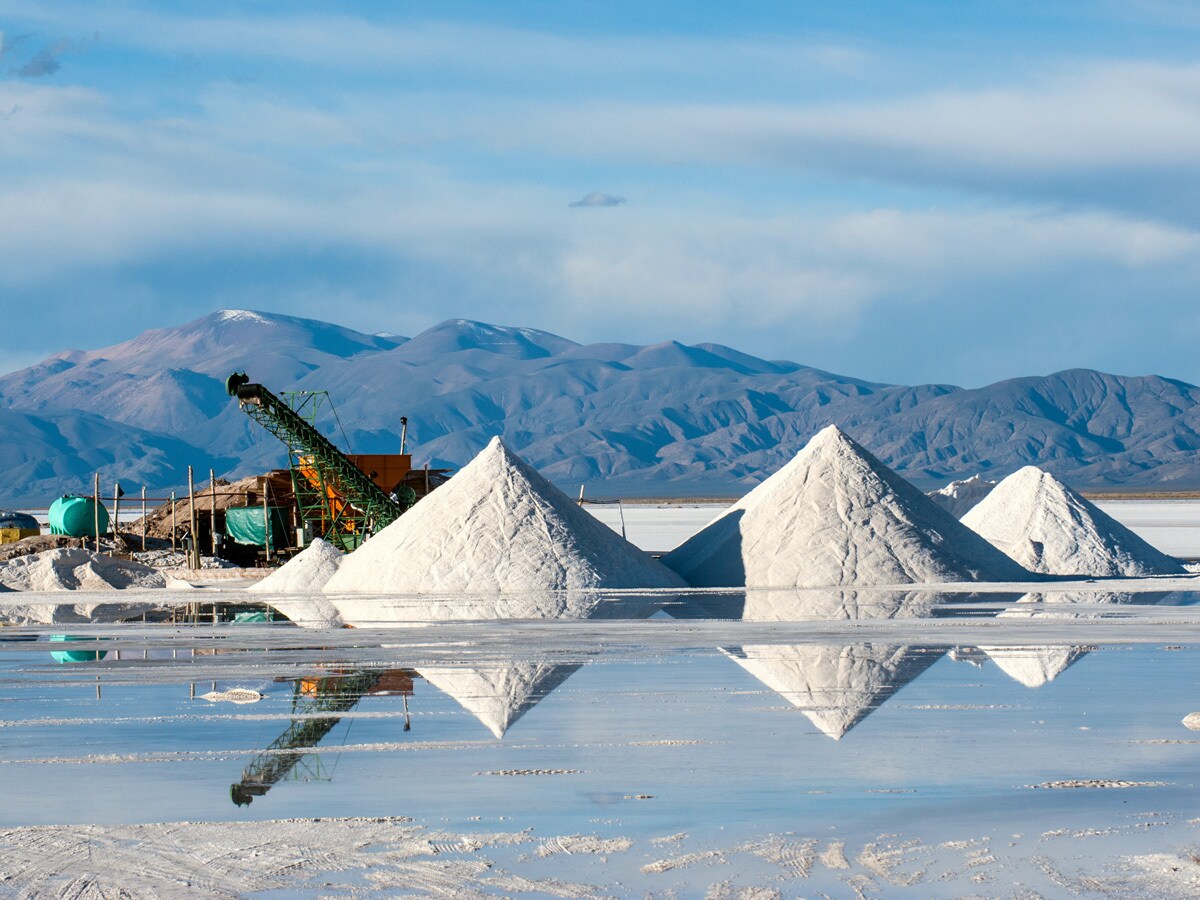South America has an abundance of salt flats and lithium deposits, and Chinese miners and electric vehicle (EV) battery manufacturers have been ramping up their investments across the continent. Meanwhile, the US is focused on stymieing China’s involvement in its domestic EV supply chain.
- China is responsible for 13% of lithium production, versus Chile’s 25%.
- Foreign investments in Argentina’s lithium could increase following October’s general election.
- How to invest in emerging markets lithium: the Global X MSCI Argentina ETF is up 17% in the past six months.
China is the world’s third-largest producer of lithium. But, with a 13% share of the market, it lags behind Australia and Chile, which have 52% and 25% respectively, according to Visual Capitalist.
On the other hand, China is by far the world’s biggest producer of lithium-ion batteries. This has prompted a number of emerging markets to partner with Chinese companies, with a view to boosting the development of their nascent electric vehicle (EV) industries. Notable among these are Latin America’s so-called ‘lithium triangle’ — Argentina, Bolivia and Chile.
With Latin American countries providing the resources and Chinese firms bringing the expertise, both sides stand to gain from EV battery partnerships.
Chinese companies tap South American lithium
China is South America’s top foreign trading partner, according to the Council on Foreign Relations, and countries in the region are looking to established Chinese firms to help develop their EV supply chains.
For instance, in June the Bolivian government announced a partnership with China’s Citic Guoan Group [000839.SZ], alongside Russia’s state-owned nuclear energy corporation Rosatom, to develop the vast but untapped lithium resources at the country’s Uyuni, Coipasa and Pasto Grandes salt flats.
The news comes after a similar deal was signed with Contemporary Amperex Technology (CATL) [300750.SZ], which will see the Chinese battery giant invest $1.4bn to build two lithium plants in Bolivia. It’s expected the two agreements will help the country to produce 100,000 tonnes of lithium carbonate annually by 2025.
Elsewhere, China’s Zijin Mining [2899.HK] has reportedly been in talks with Argentine miner Camyen to build a lithium facility in Argentina. It would have the capacity to produce 50,000 tonnes of lithium iron phosphate annually for EV battery cathodes. The facility could be commissioned next year.
In the case of Argentina, the result of October’s general election could sway future investment decisions. “Any change in leadership could signal a stabler macroeconomic and political backdrop, which could result in a rush of foreign direct investment into the country,” noted W. Malcolm Dorson, senior portfolio manager at Global X, in early July.
By contrast, Chile is planning to nationalise its lithium industry, which could limit the amount of lithium carbonate Chinese companies import from the country, the Global Times reported earlier this year.
Argentina lobbies US for free-trade agreement
Beijing’s growing influence over EV battery supply chains has raised international concerns. Prudently, South American countries are also courting the US.
Argentina, for example, has been lobbying US President Joe Biden’s government for a free-trade agreement (FTA), Bloomberg reported in May. Under the Inflation Reduction Act, countries with an FTA, including Chile, can benefit from tax credits available to EV makers that source at least 40% of their battery metals from their own countries.
This threshold will increase by 10 basis points annually to 80% by 2027. From the beginning of next year, EVs will not be allowed to contain any battery components manufactured by a ‘foreign entity of concern’. From 2025, they won’t be allowed to contain any critical minerals that have been extracted, processed or recycled by one.
Thailand’s China-led EV boom
Latin America is not the only region seeing a spike in Chinese lithium investment.
Last month, Thai company Energy Absolute [EA.BK] announced it’s conducting a feasibility study on establishing EV battery cell plants in Thailand, in partnership with Eve Energy [300014.SZ] and Sunwoda Mobility Energy Technology, a subsidiary of Sunwoda Electronic [300207.SZ] that is set to be spun off in the near future.
Thailand is the largest car producer and exporter in the Southeast Asia region, and the second-largest market by sales after Indonesia. Japanese automakers have long dominated the Thai market, but their presence is now being threatened by Chinese EV makers, led by BYD [1211.HK].
Demand for EVs is expected to accelerate in Thailand, resulting in more Chinese battery manufacturers looking to ramp up their production in the country.
The industry is expected to be boosted further by Thailand’s 30@30 policy, which will require domestic manufacturing capacity of EVs to be increased by 30% by 2030. However, Energy Absolute deputy CEO Amorn Sapthaweekul told The Nation last month that the government needs to promote the policy if it truly wants to become a lithium-ion battery production hub.
How to invest in emerging markets lithium
ETFs, or exchange-traded funds, offer an economical and diversified way to invest in a variety of stocks within a particular theme.
Fund in focus: the Global X MSCI Argentina ETF
There’s no specific play on lithium in emerging markets, but there are a few alternative funds.
The Global Lithium & Battery Tech ETF [LIT] is weighted in favour of China (33.1%) and also offers exposure to Chile (3.7%) as of 31 July. Precious metals account for 3.4% of the portfolio, while other metals and minerals have been allocated 7%, and motor vehicles have a 19.2% weighting. The fund is down 11.5% in the past six months.
The Global X MSCI Argentina ETF [ARGT] holds some key mining stocks in the country, including Lithium Americas Corp [LAC.TO]. As of 31 July, the portfolio has allocated 13.3% to the energy sector, 11.4% to utilities and 9.9% to materials. The fund is up 16.8% in the past six months.
The iShares MSCI Thailand ETF [THD] holds Energy Absolute. As of 11 August, the portfolio has allocated 13.96% to the energy sector, 9.05% to industrials and 8.38% to materials. The fund is down 9.6% in the past six months.
Continue reading for FREE
- Includes free newsletter updates, unsubscribe anytime. Privacy policy






